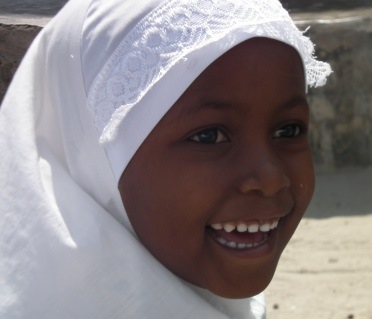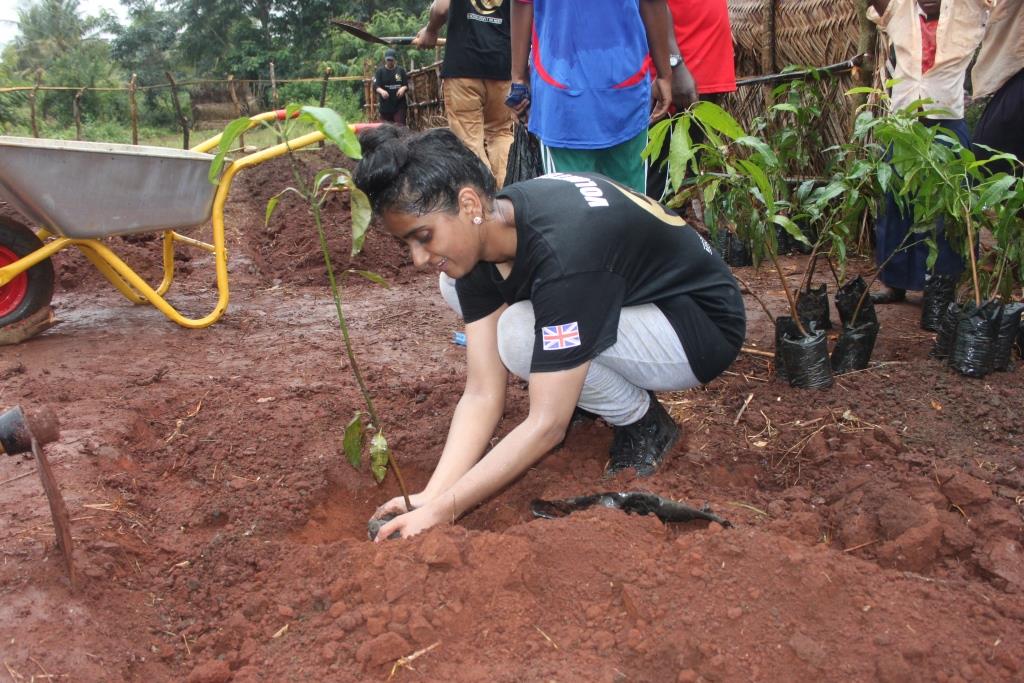Why Giving Is Not Difficult
While many of us happily reach into our pockets to help others who are less fortunate, others still find it difficult to give. Hassan Shoaib outlines four reasons which may be behind this.
Empathy: Research has shown that, as donors, we are likely to give far more to save an identifiable victim - that is, someone we can empathise with as opposed to saving a “statistical” life. For example, one study involved an experiment in the USA where participants were given the chance to donate some of the money they received for taking part in the research.

One group was simply given statistics with general information while the other was shown a picture of a young Malawian girl named Rokia (picture right).
They were told their donations could drastically change her life. The group who received information about Rokia gave significantly more than the group who were simply given statistics.
When adding only one more child to the information provided to a third group, donations dropped considerably. From this we can derive that we feel empathy when we hear the story of an individual.
Administration costs: A lot of donors may be put off by the percentage charities put away to cover administration costs. No charity delivering projects or programmes to beneficiaries can function without these costs.
Arthur Lui, an American entrepreneur, insists there needs to be a change in the way we think of admin costs for charities. According to him, if we make the assumption that half of every dollar (or pound) we donate goes towards “on the ground” causes (such as food, medical aid etc) and the other half goes towards overheads (such as marketing and salaries), the latter half is an investment in future growth.
The money used on overheads eventually raises more funds through the employment of capable and innovative employees to create effective strategies. From this we can derive that your donation does go towards the actual project covering all aspects including delivery and admin.
Amounts: Often donors feel reluctant to give because they think that their donation is too small and won’t make a difference. No donation is too small. Islamic Help, for example, will plant a tree in Tanzania for just £5.

How will a tree benefit people? Well, there is a huge emphasis in today’s world regarding clean energy and being environmentally conscious.
In fact Islam teaches us to care for, conserve and enrich the planet. Our prophet Muhammad (Peace Be Upon Him) said: “Never does a Muslim plant a tree or sow a crop and a bird, human being, or beast eats from it without earning the reward of charity.”
Trees are providers of shade and beauty of the urban environment. They provide habitation for birds and many other animals. At their most basic, and arguably most important level, they produce the oxygen we need for our very survival.
Infrastructure: Nobel Prize-winning social scientist Herbert Simon suggests that without stable institutions such as a reliable police force, banks, schools and a fair criminal justice system, it is extremely difficult competing on a global scale. American investor Warren Buffet said: “If you stick me down in the middle of Bangladesh or Peru, you’ll find out how much this talent is going to produce in the wrong kind of soil.”
Those in the poorest continents of the world are likely to catch an illness which affects their education, leaving them to work just to cover their basic needs. No matter how talented or hard working they are, it isn’t easy to rise above poverty without the correct infrastructure.
Support our work helping people in need across the world. Donate today.



